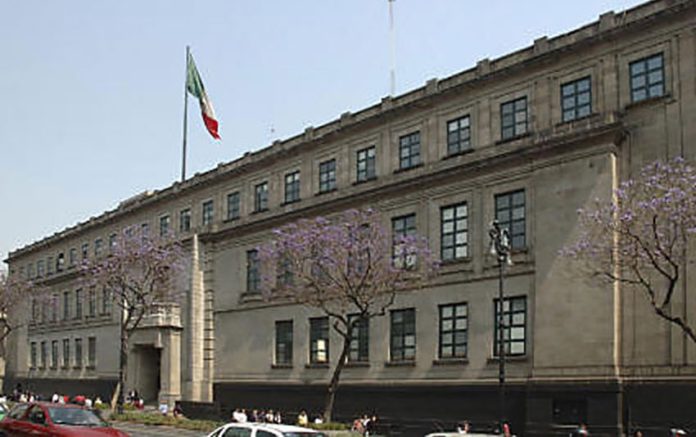The Supreme Court has suspended a new Energy Ministry (Sener) policy that imposed restrictive measures on the renewable energy sector.
Justice Luis María Aguilar Morales made the ruling in response to a complaint filed by Mexico’s antitrust regulator, the Federal Economic Competition Commission (Cofece).
The competition watchdog argued that the Sener policy published on May 15 violated the constitutionally enshrined principles of free competition.
The policy placed limits on the number of permits that can be issued for new wind and solar projects and prohibited their construction in parts of the country where there are already a large number of renewable plants, among other restrictive measures.
Aguilar accepted Cofece’s argument and suspended the policy, which ostensibly sought to guarantee the reliability, security, continuity and quality of Mexico’s national electricity system.
Critics say the aim of the policy is to prevent the expansion of the renewable energy sector and consolidate control of electrical power in the state-owned Federal Electricity Commission (CFE).
Pending a final ruling by the court, Sener’s 2017 reliability policy will re-enter into force as a result of Aguilar’s decision.
His ruling, published Monday, came two weeks after a federal judge issued a suspension order against the same policy.
Energy Minister Rocío Nahle responded to the decisions in a Twitter post.
“The executive has the obligation to provide security and custodianship for the energy system in Mexico. The government is respectful of the decisions of the judicial power; we will fight any disputes in court with solid arguments to maintain the reliability of the national electricity system,” she wrote.
According to the Business Coordinating Council, an influential business lobby, some 578 lawsuits have been filed against Sener’s suspended policy.
The Mexican Employers Federation (Coparmex) said the Supreme Court ruling “returns confidence to private sector investments, especially in the renewable energy sector.”
It also “constrains the federal government’s intentions to return a monopoly to the Federal Electricity Commission,” Coparmex said. “The court is an asset for legal certainty.”
Alain Duthoy of the oil sector consultancy LexOil told the newspaper Milenio that if the Supreme Court upholds Aguilar’s decision in a final ruling, the federal government will have no further recourse.
The Energy Ministry would therefore have to keep the 2017 reliability policy in place or publish a new, more flexible one that respects competition rules.
Meanwhile, President López Obrador this morning renewed his attack on private energy companies and past governments.
Speaking at his regular news conference, López Obrador claimed that private companies and the CFE under previous governments committed fraud.
He charged that the CFE signed contracts with private companies that established the rate the former would pay the latter for supplying electricity to the national grid.
However, “immediately after a contract was signed,” a new one stipulating higher rates was put in place, López Obrador said.
As a result of the “illegal procedure,” the CFE has to pay “extremely high” rates to private companies, he said, adding that the government will launch legal action against those who participated in the scheme.
“It’s fraud, … and it caused damage to public finances,” López Obrador said.
“We’ve estimated the [financial] damage and at the [right] time we’ll report it. … [But first] we want to speak to the companies, one by one. … I’ve given the instruction to start drawing up the corresponding complaints, that’s the substance of the matter.”
The president’s accusation comes a month after CFE director Manuel Bartlett accused renewable energy firms of committing “simulation and fraud” at the expense of the state-owned utility.
He accused renewable firms of passing off other private companies as their business partners rather than their customers in order to avoid paying transmission costs to the CFE.
Source: Milenio (sp), El Financiero (sp)
